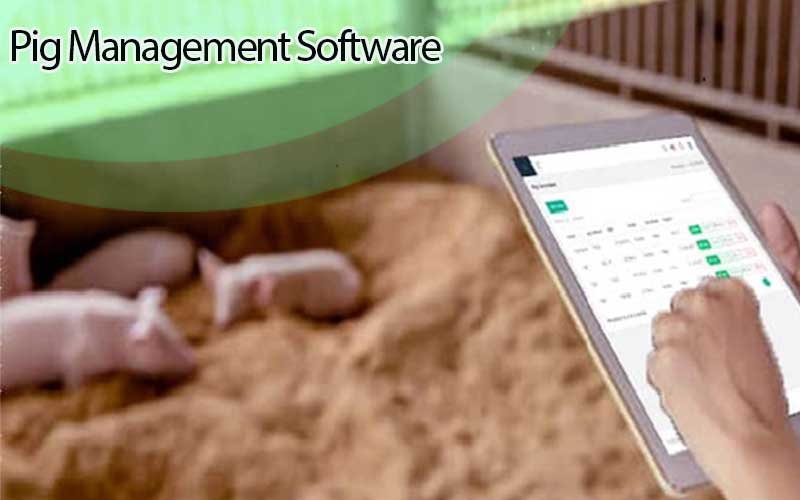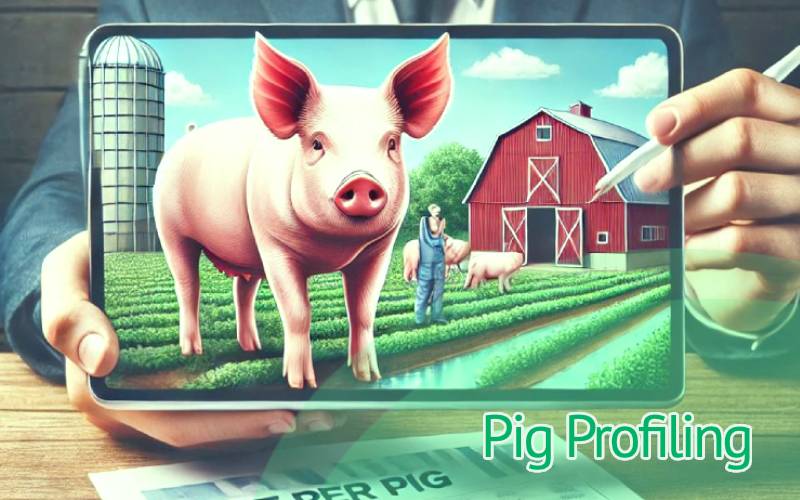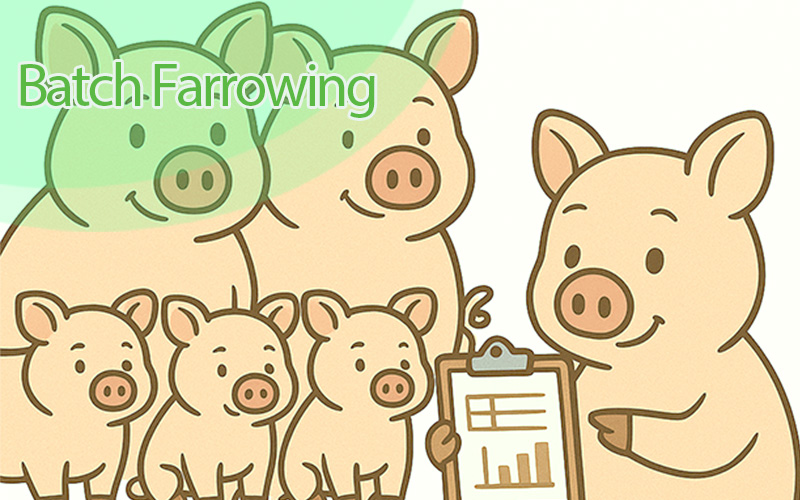How to Succeeed as a Piggery Manager
No pork production facility can thrive effectively without the services of a pig manager.
The responsibilities of piggery managers vary from farm to farm, but at the end of it all from overseeing daily operations to managing staff and ensuring compliance with regulations, the pig manager's role is pivotal to the success of the farm. If you're aspiring to become a piggery manager, you're in the right place.
In this blog, we'll explore the essential steps and strategies for achieving success in this dynamic and rewarding profession. First, let us go through some of the tasks performed by a piggery manager
Roles of A Piggery Manager
To become a successful piggery manager, one must first familiarize himself with the overall roles and responsibilities required from a piggery manager. some of them are explained below.
Supervising Daily Operations:
The pig farm manager is responsible for ensuring that all pigs receive proper care and attention. This includes monitoring their overall health, observing their behavior for signs of distress or illness, and providing necessary treatments or interventions.
Nutritional roles:
The manager oversees the feeding process to ensure that pigs receive a balanced diet that meets their nutritional requirements. This may involve formulating feed rations, monitoring feed consumption, and adjusting diets as needed based on factors such as growth stage, reproductive status, and health conditions.
Health Management:
The manager plays a key role in maintaining the health of the pig herd. This includes implementing vaccination programs, administering medications, and coordinating veterinary care. Additionally, the manager may develop and enforce biosecurity protocols to prevent the introduction and spread of diseases within the farm.
Monitoring Inventory:
The pig farm manager tracks inventory levels of feed and other dietary supplements to ensure that there is an adequate supply to meet the nutritional needs of the pigs. This may involve conducting regular inventory checks, monitoring feed consumption rates, and ordering additional supplies as needed to maintain adequate stock levels.
The manager also monitors inventory levels of medications, vaccines, and other veterinary supplies used on the farm. This includes keeping accurate records of usage, expiration dates, and storage conditions, as well as ordering replacements as needed to ensure that essential supplies are always available when required.
Disease Prevention:
The pig farm manager develops and implements biosecurity protocols to minimize the risk of introducing and spreading diseases within the farm. This may involve restricting access to the farm, implementing sanitation procedures, and monitoring the health status of incoming animals.
Facility Management:
The manager ensures that farm facilities are properly maintained and sanitized to minimize the risk of disease transmission. This includes cleaning and disinfecting equipment and facilities regularly, as well as implementing quarantine procedures for new arrivals to the farm.
Training and Education:
The manager educates farm staff about the importance of biosecurity and provides training on proper procedures for disease prevention and control. The piggery manager must be able to deliver major training to employees to guarantee the success of the farm. This may include instruction on hand hygiene, biosecurity protocols, and recognizing and reporting signs of illness in pigs.
Managing Staff:
The pig farm manager is responsible for recruiting and selecting qualified individuals to work on the farm. This involves advertising job openings, reviewing resumes, conducting interviews, and making hiring decisions based on the candidates' skills, experience, and suitability for the position.
Once hired, the manager also provides training to new employees to ensure they understand their roles and responsibilities and farm policies and procedures. This may include on-the-job training, safety training, and instruction on proper animal handling and care techniques.
Essential Skills Every Farm Manager Must Have
To succeed as a pig farm manager, there are certain skills to be possessed, these skills equip to tackle the huddles of the job.
Team Management:
Effective leadership skills are essential for managing farm staff and ensuring that tasks are completed efficiently and effectively. This includes providing clear direction, setting expectations, and motivating team members to achieve common goals.
Animal Nutritional knowledge :
A successful pig farm manager must have a deep understanding of the nutritional requirements of pigs at different life stages. This includes knowledge of feed ingredients, nutrient composition, and feeding strategies to optimize growth, reproduction, and overall health.
Animal Behavioral Understanding:
Knowledge of pig behavior is essential for effective management and handling. Understanding how pigs interact with each other and their environment can help the manager identify signs of stress, aggression, or illness, and implement appropriate interventions.
Financial Management:
The manager must have a solid understanding of financial statements, cash flow management, and financial analysis techniques to monitor the financial health of the farm and make informed decisions about investments, expansion, or diversification.
Vet skills:
A thorough understanding of common health issues affecting pigs is crucial for disease prevention and management. This includes knowledge of symptoms, diagnostic procedures, and treatment options for diseases such as respiratory infections, gastrointestinal disorders, and parasitic infestations.
Challenges Piggery Managers Face
This profession does not come without its fair share of challenges. Let us go through some of them
Disease Outbreaks:
Disease outbreaks pose a significant threat to pig farms, as they can result in illness and death among the herd, as well as financial losses for the farm. Common diseases affecting pigs include swine flu, porcine reproductive and respiratory syndrome (PRRS), and African swine fever (ASF). Managing disease outbreaks requires quick identification, quarantine measures, and collaboration with veterinarians to implement effective treatment and prevention strategies.
Regulatory Compliance:
Pig farms are subject to a wide range of regulations at the local, state, and federal levels, covering areas such as animal welfare, environmental protection, and food safety. Compliance with these regulations requires careful record-keeping, adherence to best practices, and ongoing monitoring to ensure that the farm operates by legal requirements.
Labor Shortages:
Finding and retaining skilled labor can be a challenge for pig farm managers, particularly in regions with low unemployment rates or where agriculture is not a popular career choice. Labor shortages can impact farm productivity, increase operational costs, and create additional stress for managers who must juggle multiple responsibilities without sufficient staffing.
Software for pig farm managers
One of the key challenges for pig farm managers is effectively managing inventory, including feed, medications, and other supplies essential for daily operations. Instead of using the traditional methods of inventory tracking, which is time-consuming and inaccurate, pig farmers are encouraged to use a software-based approach to solving inventory problems. one of the best software to use is Pigax pig management software.
With Pigax, managers can easily track and manage inventory with precision and accuracy. The software provides a centralized platform for recording and monitoring inventory levels, updating stock quantities in real time, and generating automated alerts for low stock or expiration dates.
Pigax simplifies the inventory management process by enabling managers to create customizable inventory categories, set reorder points, and generate purchase orders directly from the software.
By maintaining accurate inventory records and optimizing stock levels, managers can ensure that pigs receive the necessary supplies on time, minimize waste, and reduce costs associated with overstocking or stockouts.
In addition to inventory management, Pigax offers a range of features to support feeding and general farm management tasks. From creating feeding schedules and tracking feed consumption to monitoring pig health and performance, Pigax provides managers with the tools they need to make informed decisions and optimize farm operations for success.
Conclusion
Becoming a successful pig farm manager is no easy feat, but with dedication, hard work, and a commitment to lifelong learning, it's within reach. By understanding the role, gaining knowledge and experience, developing practical skills, building a strong foundation, implementing effective management practices, embracing sustainability and innovation, and overcoming challenges, you can achieve your dreams of success in the world of pig farming. So roll up your sleeves, dig in, and get ready to embark on an exciting and rewarding journey as a pig farm manager.




